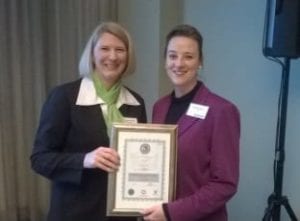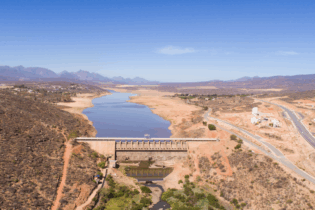The Johannesburg Stock Exchange announced on June 3 of this year that a new collaboration with global index provider FTSE Russell will see its environmental, social and governance (ESG) disclosure indicators align with FTSE Russell’s advanced ESG approach.
“The new approach will replace our Socially Responsible Investment (SRI) Index. It will give JSE-listed companies the opportunity to follow leading international disclosure practices, while also giving investors more opportunities to integrate ESG into investment decisions,” said Corli le Roux, JSE sustainability head at a sustainability breakfast hosted on July 3 by engineering firm Aurecon.Sustainability misconceptions
Le Roux commented that many companies and investors still have misconceptions regarding sustainable investment and integrating ESG factors. “Unfortunately there is still some fear that investors will compromise their returns. However, research is increasingly demonstrating the contrary and investors are progressively responding to the material nature of many ESG factors as they relate to investee companies,” says le Roux. Challenges do remain, for example systemic issues, such as short-term reporting cycles, which make it difficult to recognise more long-term sustainability benefits. Delivering financial return for shareholders needs to be balanced with the fact that sustainable business models impact every level of business and its changing value chains, as well as how projects are implemented and even job roles within companies. “South Africa is a stakeholder-driven environment, and companies understand that they must also be accountable to the communities that they operate in, their employees and their global value chains. Integrated reporting and transparency are becoming more and more important. We are seeing crumbling of job silos in that sustainability managers need to understand financial implications and CFO’s need to understand sustainability imperatives. A great deal of convergence is happening at executive level,” observed Le Roux.Whose money is it anyway?
Le Roux says that investors must remind themselves whose money they are stewards for. She quoted Rob Rusconi’s research that the last 50 years has seen a democratisation of ownership through pensions and insurance, with the ultimate beneficial owners of shares being the man on the street. “Investors need to take into account anything that can potentially destroy the value of what they hope to make a return on. This is why they must consider the sustainability of the companies they invest in,” said Le Roux.She acknowledged that companies are faced with operational challenges, market pressures and increased regulation, leading many of them to forego sustainability reporting because it can seem to be a large, daunting task.
“Companies already have a lot to deal with and there are so many reporting tools and measures available that companies don’t always know where to start,” she says.






